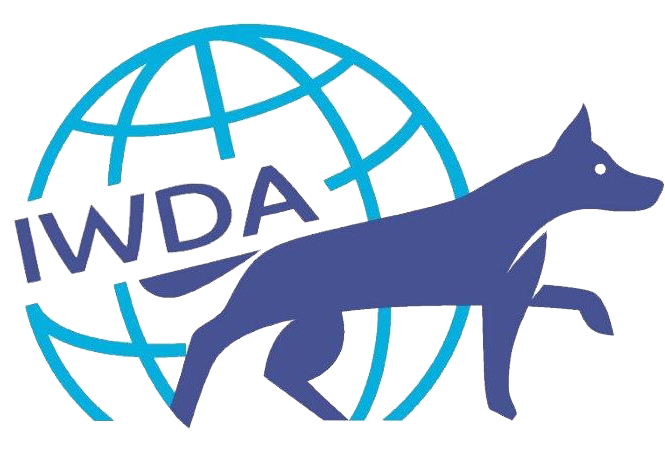By Jed Weisberger
The additions of Dr. Holger Volk and Dr. Cynthia M. Otto, joining Dr. Fiona Hollinshead, who was previously announced, complete the lineup of plenary speakers for IWDC 2021, to be held virtually Oct. 12-14.
The Scientific Committee thanks the three individuals for accepting the plenary roles, which will consist of a 50-minute talk and be the keynote address at 10 a.m. EDT (1400 UTC) each day. Each will offer attendees valuable insights into the health and well-being of working dogs.
Dr. Volk currently Professor of Small Animal Diseases and the Head of Department of Small Animal Medicine and Surgery, University of Veterinary Medicine Hannover (Germany) and the treasurer of the European Board of Veterinary Specialization, will speak on “Epilepsy in Working Dogs.”
Volk, who will speak Oct. 13, graduated from the University of Veterinary Medicine Hanover in 2001, where he also did his Ph.D in Neuropharmacology studying basic mechanisms of drug-resistant epilepsy. He then completed his specialist clinical education doing an internship and a residency in Neurology and Neurosurgery in London at the Royal Veterinary College (RVC).
The RVC also provided him with the chance to not only excel academically and clinically, but also in his leadership skills, going through the reigns from lecturer to head of service, clinical director of the Small Animal Referral clinic and last as head of department of clinical science and services.
Volk is internationally known for his work in the field of Chiari-like malformation/syringomyelia and epilepsy. He was President of the European College of Veterinary consensry Neurology. Holger has been chairing the International Veterinary Epilepsy Task Force, which recently published several statements for canine and feline epilepsy He also was a co-chair of the recently published American College of Veterinary Internal Medicine (ACVIM) consensus statement about medical treatment of epilepsy.
He has been a recipient of several Jim Bee educator excellence in teaching awards, the prestigious Bourgelat Award from BSAVAand the International Canine Health Award from the Kennel Club. He has published multiple books and book chapters, in addition to more than 200 articles, exceeding 130 conference abstracts, and is a frequent flyer on the international conference circuit.
Dr. Otto, who will speak Oct. 14, the Director, Penn Vet Working Dog Center, University of Pennsylvania School of Veterinary Medicine, will focus on “Pandemic or pandemonium? Creating standards for medical detection dogs.”
“The SARS-CoV-2 pandemic led to an international effort to employ odor detection dogs for the screening of individuals for COVID-19. It was documented across many platforms that the dogs were capable of discriminating odor of people that tested positive for SARS-CoV-2 from those that tested negative,” Otto said.
“The rapid nature of canine screening and urgency of the pandemic led to multiple organizations training dogs, with some dogs being deployed into operational settings. One of the key components of a valid test is to have documentation of training and testing standards. The process of standards development relies on scientific data and expert opinion to generate recommended methods for training, testing and operational usage. In the US, the National Institute of Standards and Technology supports the development of standards relevant to forensic science.
“This presentation will address the rationale for and the process of standards development as it relates to medical detection dogs for conditions like COVID-19 that impact biosecurity.”
Otto will discuss the methodology and conclusions how trained dogs are able to detect Covid in humans. She is a Diplomate, American College of Veterinary Emergency and Critical Care and a Diplomate, American College of Veterinary Sports Medicine and Rehabilitation.
Dr. Hollinshead, who will speak Oct. 12, will offer remarks on “A unique perspective of use of breeding strategies and advanced reproductive techniques to optimize development and production of continuously improved generations of specialized canines at the three major working dog breeding programs in New Zealand.”
